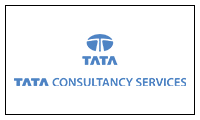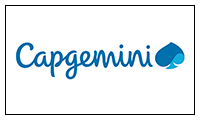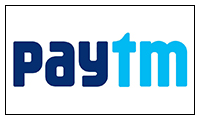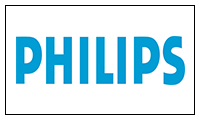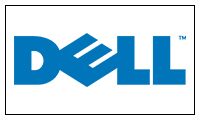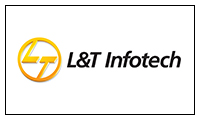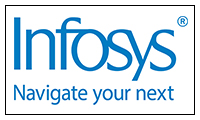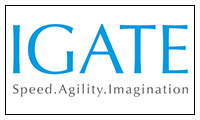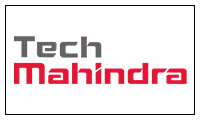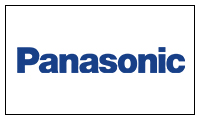





The Department of Telecommunication Engineering was established in the year 2009, with an intake of 60 students and has a staff-student ratio of 1:20. The well experienced and dedicated faculty members have an average experience of about ten years. The faculty members have demonstrated skills to groom students in academics, research, and life-long learning abilities. The department has a team of highly qualified faculty members with industrial experience and is striving hard continuously to improve upon the quality of education in engineering and technology. The department is also conducting various technical seminars/guest lectures/workshops to bridge the gap between the industry and academia to enhance the skills of students. An excellent academic and research environment prevails for creative and productive work both for faculty members as well as students.
The department aims to be a centre of excellence in the telecommunication domain and provide solutions to individuals, industry, and society.
To create a unique learning environment to provide value-added education
To train the students in the field of telecommunication engineering and its allied applications
To help the students develop skills to solve complex technological problems of modern society
PEO1:To disseminate fundamental and specialized technical knowledge and communication skills to find creative solutions for technological challenges
PEO2:To advocate the practice of engineering in a responsible, professional and ethical manner and provide eco-friendly technologies
PEO3:To enrich competence in implementing emerging technologies to satisfy industrial and societal needs
PEO4:To inculcate professionalism and a strong outlook of safeguarding public interest and sustainability
PO1:Apply the knowledge of mathematics, science, engineering fundamentals, and an engineering specialization to the solution of complex engineering problems.
PO2:Identify, formulate, research literature, and analyze complex engineering problems to arrive at substantiated conclusions using the first principles of mathematics, natural sciences, and engineering sciences.
PO3:Design solutions for complex engineering problems and design system components or processes that meet the specified needs with appropriate consideration for the public health, safety, and the cultural, societal, and environmental considerations.
PO4:Use research-based knowledge and research methods including design of experiments, analysis, and interpretation of data and synthesis of the information to provide valid conclusions.
PO5:Create, select, and apply appropriate techniques, resources, and modern engineering and IT tools including prediction and modeling to complex engineering activities with an understanding of the limitations.
PO6:Apply reasoning informed by the contextual knowledge to assess societal, health, safety, legal and cultural issues, and the consequent responsibilities relevant to the professional engineering practice.
PO7:Understand the impact of professional engineering solutions in societal and environmental contexts and demonstrate the knowledge of sustainable development and its need.
PO8:Apply ethical principlesand commit to professional ethics, responsibilities, and norms of the engineering practice.
PO9:Function effectively as an individual, and as a member or leader in diverse teams, and in multidisciplinary settings.
PO10:Communicate effectively on complex engineering activities with the engineering community and with society at large, such as being able to comprehend and write effective reports and documentation, make effective presentations to give and receive clear instructions.
PO11:Demonstrate knowledge and understanding of the engineering and management principles and apply these to one’s work, as a member and leader in a team, to manage projects in multidisciplinary environments.
PO12:Recognize the need for, and have the zeal and ability to engage in independent and life-long learning in the broadest context of technological change.
PSO1:Apply the basic concepts of electronics, communications and allied domains in the design and implementation of systems
PSO2:Solve complex communication engineering problems, using the latest hardware and software tools
PSO2:Demonstrate the skills in innovation and research
PSO2:Exhibit qualities of being a good team player and an exemplary leader
PSO2:Practice professional ethics and accept social responsibilities
To obtain consistent results in academics
To enter into MOUs to facilitate training, internship, and placements
To establish a cell for providing consultancy services
To offer training programmes and continuing education programmes
To have an all-doctorate team of faculty members
To publish technical papers in Scopus Indexed Journals
To submit proposals for funded projects in R & D activities
To strive for acquiring Intellectual Property Rights
To involve in a multidisciplinary approach and utilize the knowledge of other disciplines
To develop the department into a recognized Center of Excellence
Well ventilated class rooms and tutorial rooms
Laborotaries with advanced equipment and sophisticated software
Seminar hall
Smart classrooms
Video capturing classrooms
| I Semester | II Semester | ||
| Course Code | Course Name | Course Code | Course Name |
| 18MAT11 | Calculus and Linear Algebra | 18MAT11 | Advanced Calculus and Linear Algebra Methods |
| 18PHY12 | Engineering Physics | 18CHE12 | Engineering Chemistry |
| 18ELE13 | Basic Electrical Engineering | 18CPS13 | C Programming for Problem Solving |
| 18CIV14 | Elements of Civil Engineering and Mechanics | 18ELN14 | Basic Electronics |
| 18EGDL15 | Engineering Graphics | 18ME15 | Elements of Mechanical Engineering |
| 18PHYL16 | Engineering Physics Laboratory | 18CHEL16 | Engineering Chemistry Laboratory |
| 18ELEL17 | Basic Electrical Engineering Laboratory | 18CPL17 | C Programming Laboratory |
| 18EGH18 | Technical English- I | 18EGH18 | Technical English- II |
| III Semester | IV Semester | ||
| Course Code | Course Name | Course Code | Course Name |
| 18MAT31 | Transform Calculus, Fourier Series and Numerical Techniques | 18MAT41 | Complex Analysis, Probability And Statistical Methods |
| 18EC32 | Network Theory | 18EC42 | Analog Circuits |
| 18EC33 | Electronic Devices | 18EC43 | Control Systems |
| 18EC34 | Digital System Design | 18EC44 | Engineering Statistics and Linear Algebra |
| 18EC35 | Computer Organization and Architecture | 18EC45 | Signals and Systems |
| 18EC36 | Power Electronics and Instrumentation | 18EC46 | Microcontroller |
| 18ECL37 | Electronic Devices and Instrumentation Laboratory | 18ECL47 | Microcontroller Laboratory |
| 18ECL38 | Digital System Design Laboratory | 18ECL48 | Analog Circuits Laboratory |
| 18KVK39 | Vyavaharika Kannada (Kannada for communication)/ Adalitha Kannada (Kannada for Administration) | 18KVK39 | Vyavaharika Kannada (Kannada for communication)/Adalitha Kannada (Kannada for Administration) |
| OR | OR | ||
| 18CPC39 | Constitution of India, Professional Ethics and Cyber Law | 18CPC39 | Constitution of India, Professional Ethics and Cyber Law |
| V Semester | VI Semester | ||
| Course Code | Course Name | Course Code | Course Name |
| 18ES51 | Technological Innovation Management And Entrepreneurship | 18EC61 | Digital Communication |
| 18EC52 | Digital Signal Processing | 18TE62 | Microwave Theory and Antenna |
| 18EC53 | Principles of Communication Systems | 18TE63 | Computer Communication Network |
| 18EC54 | Information Theory and Coding | 18EC64X | Professional Elective -1 |
| 18EC55 | Electromagnetic Waves | 18EC65X | Open Elective -A |
| 18EC56 | Verilog HDL | 18ECL66 | Embedded Systems Laboratory |
| 18ECL57 | Digital Signal Processing Laboratory | 18ECL67 | Communication Laboratory |
| 18ECL58 | HDL Laboratory | 18ECEP68 | Mini-project |
| 18CIV59 | Environmental Studies | -- | Internship |
| Professional Elective -1 | |||
| 18EC641 | Operating System | ||
| 18EC642 | Artificial Neural Networks | ||
| 18EC643 | Object Oriented Programming using C++ | ||
| 18TE644 | Embedded Controllers and Systems | ||
| 18TE645 | Radio Frequency Integrated Circuits | ||
| Open Elective -A | |||
| 18EC651 | Signal Processing | ||
| 18EC652 | Sensors and Signal Conditioning | ||
| VII Semester | VIII Semester | ||
| Course Code | Course Name | Course Code | Course Name |
| 18TE71 | Optical Communication | 18TE81 | Advanced Cellular Communication |
| 18TE72 | Wireless Communication | 18EC82X | Professional Elective - 4 |
| 18EC73X | Professional Elective - 2 | 18ECP83 | Project Work Phase - 2 |
| 18EC74X | Professional Elective - 3 | 18ECS84 | Technical Seminar |
| 18EC75X | Open Elective -B | 18ECI85 | Internship |
| 18TEL76 | Wireless Communication Lab | Professional Electives - 4 | |
| 18TEL77 | Microwave and Antennas Lab | 18EC821 | Network Security |
| 18ECP78 | Project Work Phase - 1 | 18EC822 | Micro Electro Mechanical Systems |
| -- | Internship | 18EC823 | Radar Engineering |
| Professional Elective - 2 | 18TE824 | Network Management | |
| 18EC731 | Real Time System | 18TE825 | Sustainable Telecommunication Networks |
| 18EC732 | Satellite Communication | ||
| 18EC733 | Digital Image Processing | ||
| 18EC734 | Data Structures using C++ | ||
| 18TE735 | CMOS VLSI Design | ||
| Professional Electives - 3 | |||
| 18EC741 | IOT and Wireless Sensor Networks | ||
| 18EC742 | Automotive Electronics | ||
| 18EC743 | Multimedia Communication | ||
| 18EC744 | Cryptography | ||
| 18EC745 | Machine Learning | ||
| Open Elective -B | |||
| 18EC751 | Communication Theory | ||
| 18EC752 | Neural Networks | ||
Students graduating with a degree in telecommunication engineering can easily find employment in public and private sector organizations. These companies specialize in providing telecommunication services such as high-speed internet, wireless communication, and cable television to residential and commercial users across the country. The telecommunications industry is a highly competitive and rapidly growing industry, offering thousands of lucrative jobs.
They could be employed as test engineers, software/application engineers, product managers, customer support staff, installers/repairers, power reactor operators, power distributors/dispatchers, etc. Cable and satellite networks, information and broadcasting sectors, railways or police wireless organizations, aerospace industry, telecommunication service providers, mobile phone service providers are some other areas that, one could be placed. They can also find employment in the field of design and development, production, quality assurance, sales and servicing, and software engineering.
Graduates who can accept challenges in design can work as telecom hardware and software engineer, telecom system solution engineer, real-time computer systems developer, performance optimizer, DSP chip design engineer, video engineer, AI developer, and neural network engineer.
Employment opportunities are also available in public sectors such as BSNL, MTNL, DRDO, NAL, HAL, and ISRO.
Pass in PUC/10+2 Examination with Physics and Mathematics as compulsory subjects along with one of the chemistry/Computer science/ Electronics/Technical vocational subjects and obtained at least 45% marks (40% in case of candidate belonging to SC/ST category) in the above subjects taken together of any Board recognized by the respective State Governments / Union Territories or any other qualification recognized as equivalent there to. Once the CET / COMEDK exams (entrance exam) get over, aspiring students would be able to assess their performance and seat allotment possibilities to the college of their preference. There would be acceleration in the admission process under Management Quota after the exams. To be assured the seat under Management Quota, it is necessary to secure the seat early by complying with the terms and conditions.
|
Secton |
Class teacher |
E-mail ID |
Phone number |
|
IV |
Ms. Divya Lakshmi J. |
divya19lakshmi@dbit.co.in |
9606775504 |
|
VI |
Mr. Kishor Kumar R. |
kishor13kumar@dbit.co.in |
9482074798 |
|
IV |
Ms. Sheela S. |
sheelas@dbit.co.in |
9972666447 |

